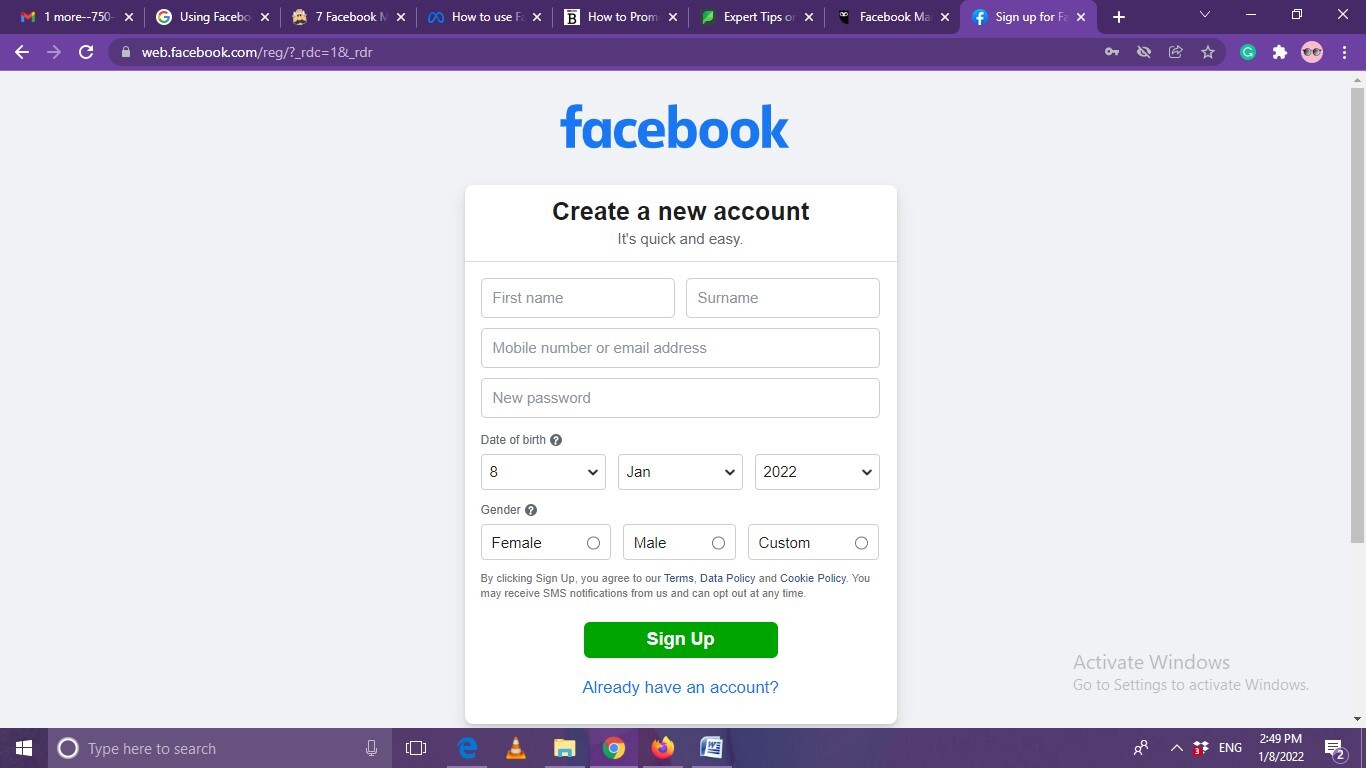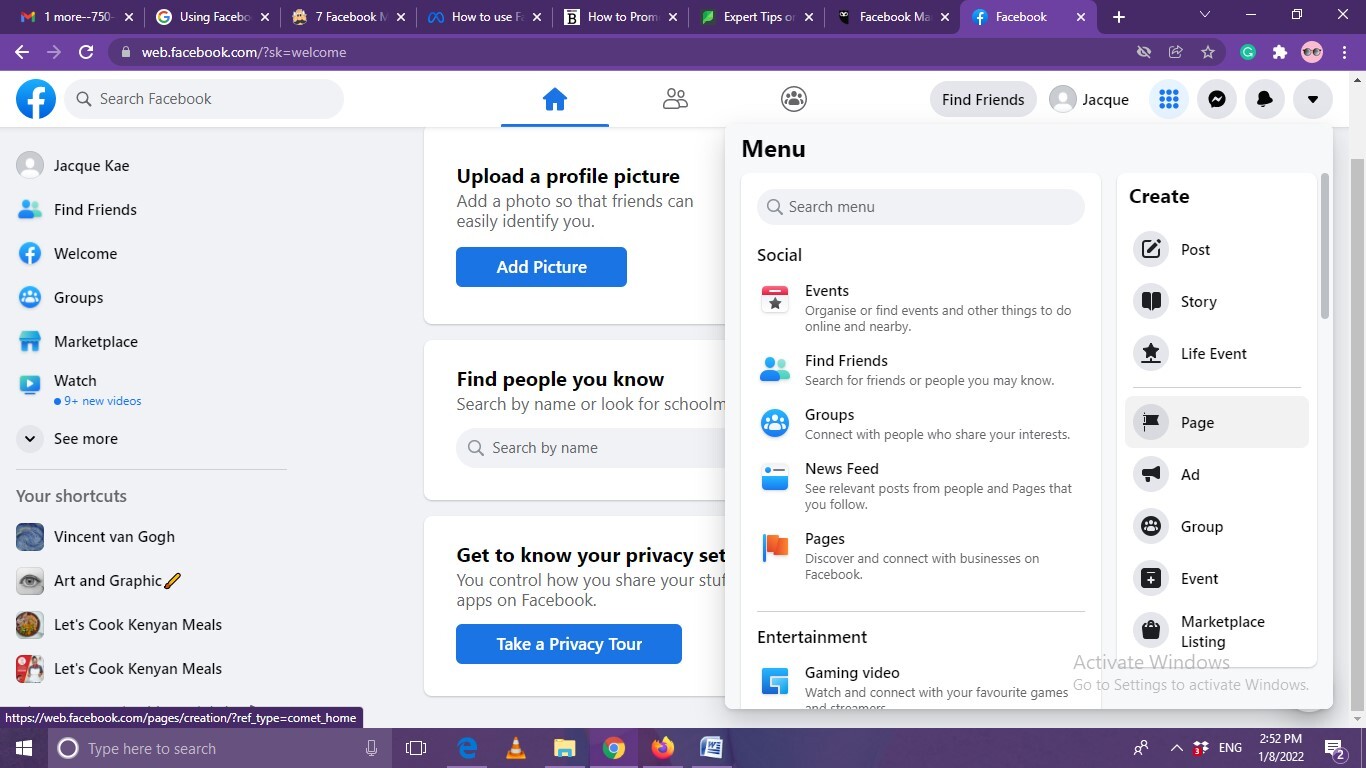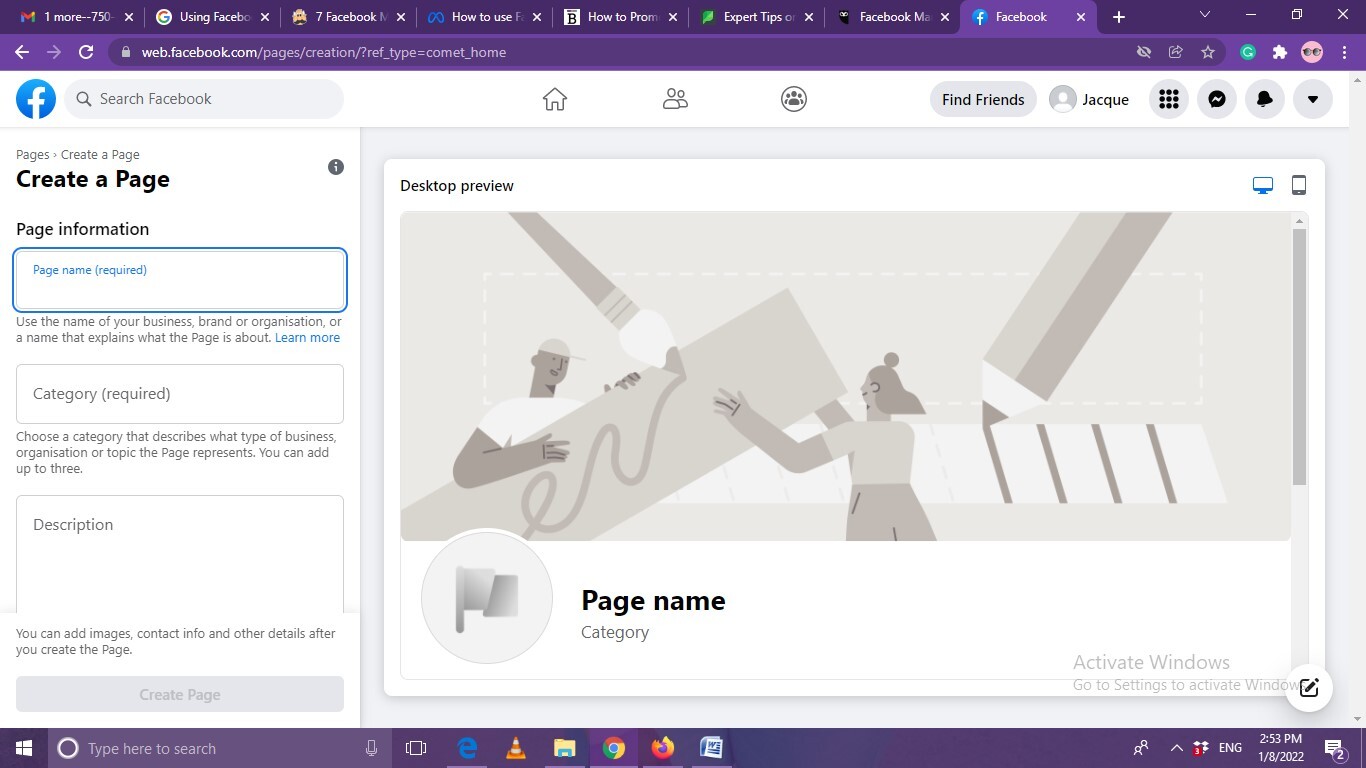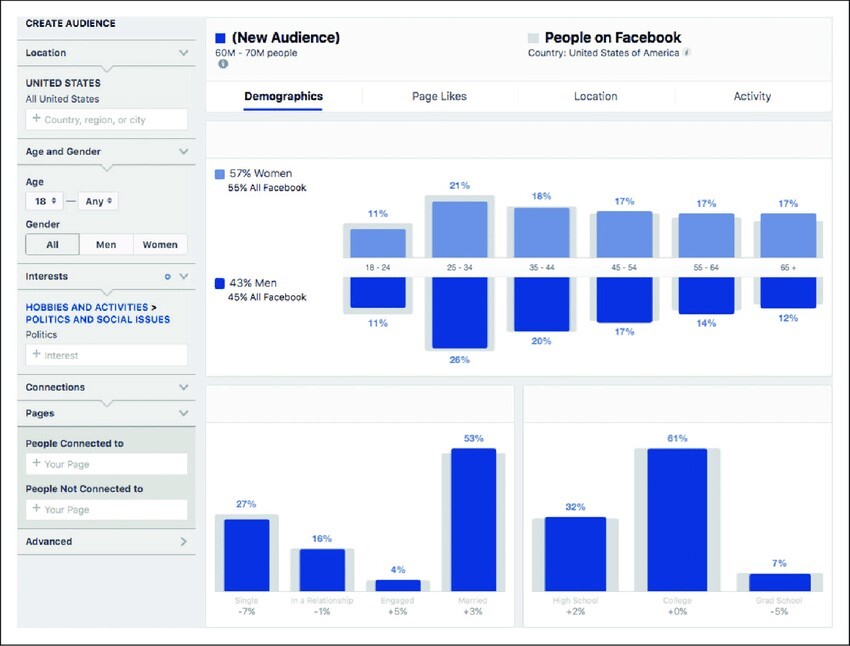With 2.7 billion users, a small business can be able to find new clients through Facebook and build long relationships with them. You can be able to build your online presence so that you can connect with prospective clients, generate new leads, and enhance your customer service.
If you are wondering, how you can use Facebook for marketing small businesses, then read on.
How to Market your Small Business on Facebook
There are so many ways that you can promote your business on Facebook from video ads to finding new clients. As a result, this can be quite a difficult process for small businesses. However, do not fret. Below are easy steps for using Facebook to market your small business.
1. Set Up Your Facebook Business Page
If you want your small business to make it on Facebook, then you have to make a separate page from your personal account. A Facebook page is simply like your timeline, but instead of adding friends, users must follow and like the page to see its updates.
• Sign Up or log in to your account: You can set up a fresh Facebook account or simply use your account.

• Once you have logged in to your account, click on the menu option. On the right side, you will see a create section, click on ‘Create Page’.

• Fill in your business details here. Give your page a name, add a description, then choose a profile and cover images for this page. Your username should be the name of your business to avoid any confusion.

• Customize your page: Add any other information related to your business. This can include things like location, business hours, phone number, and email address.
• Tell your story: Even though you have already entered a description of your business, you will need to tell your story. Talk a brief history of your business, how it was formed, your products and services, what makes your brand stand out, etc.
• Add some content: Before you find any clients or followers, you will need to add some content first. Add a captivating introduction then post about your products and services.
• Invite followers: Once you have your first post, it is time to invite followers. You can go to your friends list and invite them to like your page but only if you are certain they might be interested in your services.
2. Define your Target Audience
Not everyone on Facebook will be interested in your business. So, once you have created your page, it is time you find your audience. You have to understand whom you are talking first to before posting any content. Get to understand who your audience is first by asking yourself questions such as:
• What kinds of products or services do you offer?
• How old are your potential audience?
• What challenges do they have?
• What are their genders?
• What are their jobs?
• How often do they use Facebook and for what purposes?
• Where do they live?
It is always important to understand the demographics of your target audience. You can also use the free Facebook Audience Insights to get the necessary details of your potential customers. This tool can help break down things like age, education, language, gender, past purchasing activity, and other details about your prospective audience.

3. Post Content Regularly
A successful Facebook page requires one to post regularly. Sharing posts frequently show prospective clients that you are transparent and committed. You can post photos of your products, any recent updates on your products, holiday wishes, etc. Just make sure that whatever content you post is interesting and entertaining.
If you are unsure what you should post on your Facebook page, then you can use the Facebook poll to question your followers about what they would want to see. You can also discover new trends in your niche and post updates on them. Also, do not forget to research keywords when planning what to post.
4. Set Goals
Your Facebook page should get your small business much more than just likes. Even though more likes might seem like a big achievement, but they can also mean nothing. Therefore, when using Facebook for marketing, then you will need to set goals first. Every small business has different objectives. However, when setting up a marketing strategy, then it should include generating more leads, improving customer service, and increasing conversions. Ensure that all posts you add on your Facebook page relate to your goals.
5. Engage your Followers
Businesses should be able to interact with their customers by responding to their comments and questions. Thus, make sure that you post engaging and captivating content that will create a conversation. Try to be friendly and professional as well. Remember to post updates and respond to comments and private messages.
6. Use All Facebook Features
Facebook has everything you need to market your small business. If you want to reach out to clients organically, then try out Facebook Ads. This will allow you to reach a wider audience as well as target your posts to the people who might be interested in your products and services.
Other than that, you can use other features such as:
• Facebook Live: This allows you to record a video in real-time. All your followers will receive a notification that you are live, and they can join you if they want to. You can use this feature to interact with your followers or answer any questions they may have.
• Facebook Stories: This tool works exactly like the Whatsapp status feature. You can post updates on your Facebook stories after which it will disappear after 24 hours.
• Facebook Business Manager: To take your marketing strategy to another level, then consider this feature. It will help you manage your business page and posts.
• Facebook Chatbot: The customer will receive an automated response once they send you a message. It can be a helpful tool especially when you are not available to respond right away.
Conclusion
So there you have it. There is a lot you should know when it comes to Facebook marketing. But the best part is that marketing your small business on Facebook is very easy, requires little effort, and no dime. Once you break down the process, you will note that it is easy to market and learn. And with the right approach, small businesses will be able to achieve their goals in no time.




